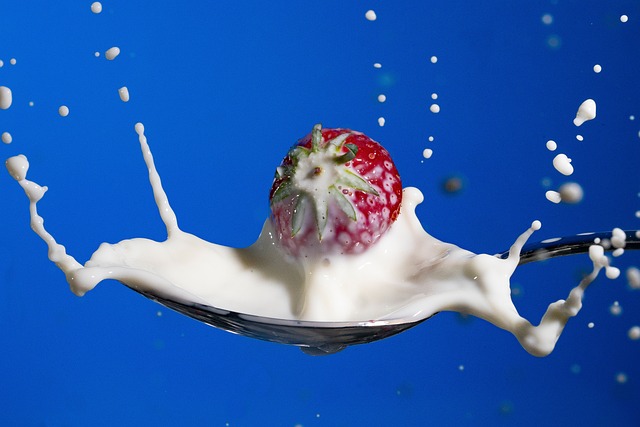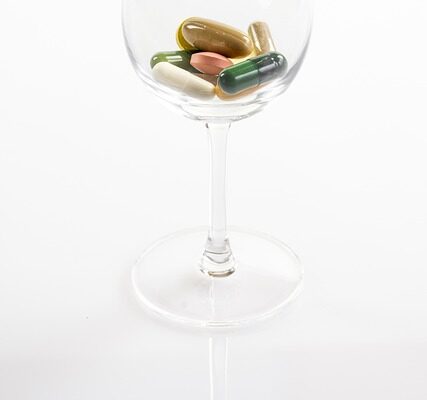HCG (human chorionic gonadotropin) diet is known as the pregnancy hormone since the placenta produces it during pregnancy. But the HCG diet, on the other hand, has nothing to do with pregnancy. It is a contentious diet that mixes illicit HCG pills or hormone injections with a very low-calorie diet.
Only prescriptions for HCG medicines for the treatment of female infertility have been approved by the US Food and Drug Administration (FDA).
HCG pills may not be lawfully sold for weight loss in the United States; a warning was issued by FDA about their safety and bogus weight-loss claims.
The HCG diet involves synthetic HCG pills or HCG hormone injections with a severe calorie restriction. The diet, which is divided into three phases, is a short-term eating regimen designed to help people lose significant amounts of weight in three to six weeks. Many HCG supporters claim that the diet can result in weight loss of up to two pounds per day.
While the HCG diet can help you lose weight quickly, it is not considered safe by medical professionals. The FDA states that there is “no substantial evidence” that it is even effective. Most experts concur that the HCG diet’s weight loss is attributable to rigorous calorie restriction rather than the HCG hormone itself.

The HCG diet is extremely dangerous, harmful, and unlawful. This material should use the information only because health professionals advise against trying it. There are plenty of other, safer weight loss options to explore.
The Diet Strategy
Some supplement-based diets claim to increase metabolism, but the HCG diet works by changing the body’s hormones to convert fat into fuel. A typical HCG diet plan consists of three phases: the loading phase, the weight loss phase, and the maintenance phase.
The phase of Loading
This is the calorie restriction that comes with the weight reduction phase. During this brief two-day “primer,” persons prepared to begin the HCG diet consume exceptionally high-fat and high-calorie foods. It encourages you to consume up to 250 grams of fat per day—and you are encouraged to consume as many calories as possible. (For perspective, this is 2,250 calories per day from fat alone.)
At this period, daily HCG hormone supplements or injections are also started. This phase, in theory, “stocks” the regular fat cells you want to preserve while also preparing the body to burn “bad” fat.
The phase of Weight Loss
Following that, followers continue to take HCG supplements while consuming 500 or 800 calories each day, divided into two meals. Depending on an individual’s weight loss goals, the weight loss phase may take three to six weeks.
Phase of Maintenance
Once someone on this diet has lost the appropriate amount of pounds, they gradually discontinue HCG hormone therapy while gradually increasing calories. Though HCG diet guides do not specify the number of calories you should eventually consume to maintain weight loss, some say 1,200 to 1,500 is a good starting point.
How Many Calories Should You Eat?
The HCG diet plan suggests ingesting 500 or 800 calories each day, divided out across two meals. The time of these meals isn’t important, but calories are generally distributed pretty evenly between lunch and dinner.
The diet recommends coffee or tea for breakfast. You can sweeten it with stevia or saccharine. Because HCG allows for one tablespoon of milk every day, some people choose to add it to their coffee for breakfast.

The HCG diet does not require any specific recipes, although many online resources offer meal plan options that stay inside the 500-calorie-per-day objective. If you decide to give the HCG diet a try, you can expect to consume approximately 250 calories at lunch and dinner, distributed over two meals per day.
While the 500-calorie form of the HCG diet is the most well-known, there is also an 800-calorie variant. If you decide to be on the 800-calorie version, it can be more gratifying but result in less drastic weight loss.
What You Can Consume
On the HCG Diet, permitted foods include lean proteins, just some allowed vegetables and fruits, spices, and coffee, tea, or water.
- Protein that is lean The HCG diet’s two daily meals are centered on a 3.5-ounce amount of lean protein. Chicken, egg whites, white fish, scallops, crab, lobster, extra-lean beef, and bison are all acceptable options.
- Vegetables that have been approved Only some veggies are permitted on a diet. At lunch and dinner, one serving of beet greens, cabbage, lettuce, celery, cauliflower, broccoli, asparagus, spinach, chard, tomatoes, onion, shallots, or radishes is permitted to complement lean protein.
- Fruits that have been approved A restricted number of fruits, like vegetables, are permitted in HCG-compliant meals. Berries, citrus fruits, and apples, for example, can be eaten once at lunch and once in the evening.
- Spices and herbs Herbs and spices are the major means of seasoning food on the HCG diet because they are generally low- or no-calorie. HCG-compliant dishes frequently season meats and vegetables with lemon juice, salt, pepper, rosemary, garlic, or thyme.
- Water, coffee, and tea Dieters are allowed to consume as much coffee, tea, and water as they like. However, coffee and tea may only be sweetened with stevia or saccharin, and the diet only allows for one tablespoon of milk each day to provide richness to hot beverages.
What You Shouldn’t Eat
The HCG diet prohibits the consumption of a wide range of foods. Sugary foods, sweets, and desserts, for example, are prominent in many diet programs. Some, however, are more surprising, such as oils, which frequently contain monounsaturated and polyunsaturated fats that can be highly beneficial.

- Dairy Products You are allowed to have one tablespoon of milk per day. Otherwise, the HCG diet’s weight loss phase does not allow cheese, yogurt, ice cream, or any additional milk.
- Foods High in Carbohydrates The HCG diet restricts both calories and carbohydrates. At the same time, a single piece of Melba toast or one breadstick may be allowed at supper (depending on calorie intake); grains, muffins, bread, spaghetti, and other high-carb items are not.
- Oils and fats Fats and oils are not permitted on the HCG diet. The diet’s drastic caloric restriction leaves little place for the nine calories per gram of fats contained. (This also applies to salad dressings.)
- Sugary drinks and alcoholic beverages The HCG diet avoids the empty calories that liquids like soda, beer, and wine may provide. On this diet, the only allowed beverages are coffee, tea, and water.
- Desserts and sweets The HCG diet does not permit the consumption of sweets or desserts. Cookies, candies, and cakes are high in calories and might easily include as much as a single HCG meal. Thus they are avoided totally.
Advantages of the HCG Diet
- Rapid Fat Loss Starting the HCG diet will almost certainly result in quick weight loss, at least at first. However, research suggests that HCG hormone injections have little effect on how much weight people lose. Any weight loss is purely due to a reduction in calorie consumption.
- Simple to Follow In terms of structure, the HCG diet is simple to follow. It has three distinct phases and calorie targets, and the number of calories or units of hormonal injections is the same from person to person.
The HCG Diet’s Drawbacks
- HCG Supplements are prohibited. HCG injections and supplements are only lawfully given in the United States to treat female infertility. Because the FDA has prohibited all over-the-counter HCG products, any HCG product advertised as a weight loss solution is illegal. 3 The program is costly. While lowering your calorie intake, the HCG diet may save you some money on groceries, but the necessary hormonal injections are not cheap. Because the use of injections for weight loss is unlawful, it is difficult to collect precise numbers.

- This could result in extreme hunger. Short-term abstinence from food causes severe hunger. However, when calorie restriction is prolonged and extreme (as in a VLCD), it can cause not only hunger but also unpleasant side effects such as headaches, brain fog, weariness, and dizziness.
- HCG may not be present in supplements. Over-the-counter supplements, including HCG supplements, are not regulated. As previously stated, HCG can only be lawfully prescribed to treat female infertility. Some supplement manufacturers may label HCG as “homeopathic,” but that does not alter the fact that there is no oversight over what is in the supplements.
- Could Lead to Eating Disorders Not obtaining enough daily calories for an extended period of time might cause extreme hunger. Some people may binge eat or become trapped in a cycle of disordered eating, going through phases of restraint followed by overindulgence. Going for weeks without eating entire categories of healthy food groups is likely to result in nutrient deficits.
Is the HCG Diet a Good Option for You?
For a well-balanced diet, the United States Department of Agriculture’s 2020-2025 Dietary Guidelines for Americans recommends consuming a range of nutrient-dense foods such as whole grains, legumes, lean protein, low-fat dairy products, fruits, vegetables, and healthy fats.
The HCG diet’s stringent nature can quickly result in significant gaps in categories such as dairy and whole grains.
Adult women require 1,600 to 2,400 calories per day to maintain a healthy weight, whereas adult men require between 2,200 and 3,200 calories per day.
While these guidelines may vary depending on age and activity level, the HCG diet’s 500 or 800-calorie supply falls short of a healthy number of calories for adults. Remember that the calorie goal stated is only an estimate. Everyone has different nutritional requirements.
To Conclude
The HCG diet’s claims of rapid, dramatic weight loss have piqued the interest of many people. However, the lack of proof supporting its effectiveness, as well as the dangers of its high-calorie restriction and illicit supplements, make it unsuitable. A realistic and balanced weight loss strategy is a healthier, more sustainable option for the majority of people.
Remember that following a long-term or short-term diet may not be essential for you, and many diets, especially long-term diets, simply do not work. While we do not support fad diets or unsustainable weight loss approaches, we do give the facts so that you can make an informed decision that best suits your nutritional needs, genetic blueprint, budget, and goals.
If weight loss is your aim, keep in mind that reducing weight isn’t always synonymous with keeping your body in optimal health, and there are many other methods to achieve health. Exercise, sleep, and other lifestyle factors all have a significant impact on your overall health. The best diet is one that is well-balanced and fits your lifestyle.
